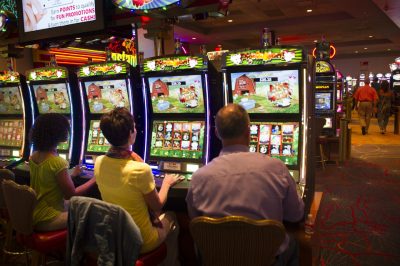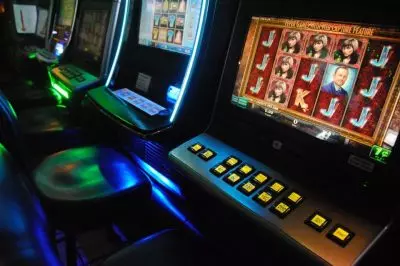 Later today, the Kentucky Supreme Court is set to hear arguments regarding the instant racing devices’ legality in the state.
Later today, the Kentucky Supreme Court is set to hear arguments regarding the instant racing devices’ legality in the state.
The machines’ supporters claim the devices are another way for gambling venues’ patrons to place bets on horse races and provide Kentucky’s coffers with a new source of revenue. On the other hand, the opponents of the machines insist that the devices are actually illegal video slot machines that could be found too attractive by players and can result in them losing their money very quickly.
Instant racing machines were officially made legal by the Kentucky Horse Racing Commission (HRC) in 2010. At the time it legalized the devices, the gambling regulatory body determined that the machines offer a pari-mutuel activity, which means that several gamblers are betting against other gamblers on horse races that have previously taken place. For the time being, pari-mutuel betting and the Kentucky Lottery are the only two forms of betting that are legal in the Commonwealth.
As a result of a campaign held by a group promoting the instant racing machines, the Horse Racing Commission in Kentucky decided that it had the exclusive right to allow historical horse gambling machines in the state.
Kentucky Supreme Court Will Have to Decide on the Legality of Instant Racing Machines
 The lawsuit that is now in the Kentucky Supreme Court is set not only to clarify whether the slot-like gambling devices are a form of pari-mutuel betting on horse races but also addresses another important issue – a separation of powers issue.
The lawsuit that is now in the Kentucky Supreme Court is set not only to clarify whether the slot-like gambling devices are a form of pari-mutuel betting on horse races but also addresses another important issue – a separation of powers issue.
It involves the court answering the question on whether then-Governor Steve Beshear had the right to use the State’s Racing Commission to implement the gambling expansion policy, even if the General Assembly has not given it the green light. If the then-Governor had no right to do so, that would mean that he had circumvented the legislative process at the time when the instant racing devices were legalized by the Kentucky Horse Racing Commission.
This is not the first time the issue is heading to court. Opponents of historical horse racing have reminded that the issue was first brought to court in 2014, with the justices only deciding part of the case at the time, as it did not rule on whether the actual operations of the machines constitute pari-mutuel betting.
Back in 2014, the State’s Supreme Court ruled that the Racing Commission had been able to license pari-mutuel betting on instant racing machines. However, the case was sent back to the trial court to determine whether it constitutes an illegal expansion of gambling in contradiction to the Kentucky Law.
The Franklin Circuit court ruled that so-called instant racing machines met the criteria to be categorized as pari-mutuel betting devices although they look like slot machines in many ways.
More Than 7,000 Instant Racing Devices Set to Start Operation within 18 Months in Kentucky
 Historical horse racing, also known as instant racing, is based on the idea that players are gambling on horse races that have been previously run.
Historical horse racing, also known as instant racing, is based on the idea that players are gambling on horse races that have been previously run.
However, Stan Cave, the legal advisor of the opponents of this form of gambling in the state has claimed that the Kentucky Horse Racing Commission should not have allowed such machines to be placed at the tracks.
The reason for this argument has been the fact that currently, all slots are not legal under Section 226 of the Kentucky Constitution. In the period from 2000 to 2010, an advocacy group defending horse interests called the Kentucky Equine Education Project (KEEP), was established. Its main objective was to alter public opinion regarding possible amendment of the State’s Constitution that would allow gambling expansion. At a later stage, the group was changed into Kentucky Wins! and kept insisting that adding a new form of gambling would generate a new revenue source for the Commonwealth.
As of December, a total of 2,800 slot machines sprouted across the state. Kentucky Horse Racing Commission allowed an additional 7,000 instant racing machines that are expected to start operation within the following 18 months.